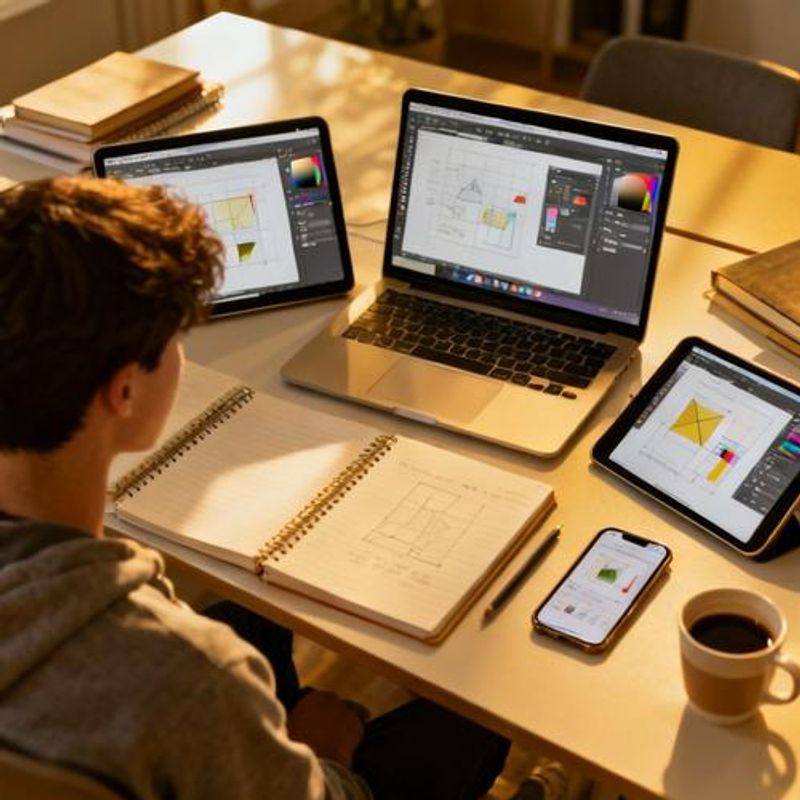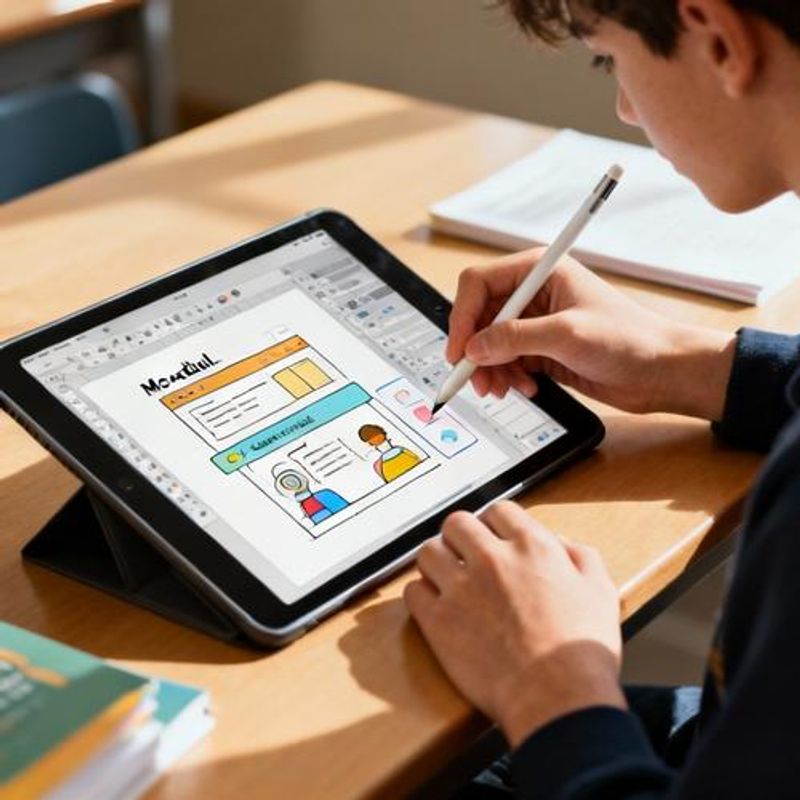7 Essential Instructional Design Tools Every Design Student Should Master in 2024

Starting your journey in instructional design feels overwhelming when faced with dozens of software options and tight student budgets. This comprehensive guide reveals seven proven instructional design tools that successful students use to create professional-quality learning experiences, complete with budget-friendly alternatives and step-by-step implementation strategies you can start using today.

Why Choosing the Right Tools Matters for Design Students
Design students face unique challenges when selecting instructional design tools. Unlike professionals with unlimited software budgets, students must balance functionality with affordability while building portfolio pieces that demonstrate real-world competency. The wrong tool choice can lead to wasted time learning complex software that doesn't translate to industry needs, or worse, creating amateur-looking projects that fail to showcase your potential. Research indicates that 68% of design hiring managers evaluate candidates based on the technical proficiency demonstrated in their portfolios, making tool selection a critical career decision.
Quick Reference: Top 7 Instructional Design Tools for Students
Based on industry surveys and student success stories, these seven tools offer the best combination of learning curve, professional relevance, and budget considerations:
- Articulate Rise 360 - Web-based course creation with student discounts
- Canva Education - Free graphic design platform with educational templates
- Figma - Collaborative interface design with free tier
- H5P - Open-source interactive content creation
- Adobe Creative Suite - Industry standard with education pricing
- Vyond - Animation software with academic discounts
- Google Workspace - Free collaboration and content organization suite

Essential Course Creation Tools: Articulate Rise 360 vs Free Alternatives
Articulate Rise 360 dominates professional instructional design for good reason. Its responsive design capabilities and built-in assessment tools create courses that work seamlessly across devices. For students, the 30-day free trial provides enough time to complete major projects, while the student discount reduces costs by 50%. Start by exploring the lesson templates - the "Process" and "Labeled Graphic" blocks are particularly effective for demonstrating complex concepts. However, free alternatives like H5P offer similar interactive capabilities. H5P integrates directly with most Learning Management Systems and requires no subscription fees. Begin with H5P's "Interactive Video" and "Course Presentation" content types to build engaging learning experiences without budget constraints.
Visual Design and Prototyping: Figma and Canva Integration Strategy
Successful instructional designers combine multiple tools strategically. Use Canva Education for quick graphic creation and social learning content, then import these assets into Figma for interface prototyping. Figma's component system allows you to create reusable design elements - build a library of buttons, navigation elements, and content blocks that maintain consistency across projects. The collaboration features enable real-time feedback from instructors and peers. Create separate pages within Figma files for wireframes, high-fidelity designs, and user flow diagrams. This workflow demonstrates professional design thinking while keeping costs minimal.
Step-by-Step: Building Your First Interactive Learning Module
Follow this proven workflow to create portfolio-worthy learning experiences: First, outline your content structure in Google Docs, identifying key learning objectives and assessment points. Next, create visual assets in Canva - aim for consistent color schemes and typography that align with accessibility guidelines. Import these assets into your chosen development platform (Rise 360 or H5P). Add interactivity through knowledge checks every 3-5 content blocks to maintain engagement. Test your module on different devices and gather feedback from at least three peers before finalizing. Document your design decisions and learner feedback in a case study format for your portfolio.

Common Mistakes That Sabotage Student Projects
Avoid these costly errors that derail promising projects: Over-designing initial attempts leads to technical overwhelm and missed deadlines. Start with simple templates and add complexity gradually. Ignoring mobile responsiveness creates unusable experiences for most learners. Test every design element on smartphone screens before finalizing. Choosing tools based on features rather than learning objectives results in impressive-looking but ineffective learning experiences. Always prioritize learner needs over flashy animations. Finally, failing to backup work properly can destroy weeks of effort. Use cloud-based tools and maintain version control through Google Drive or similar platforms.
Your Next Steps: Building Professional Design Skills
Start immediately with the free tools mentioned above - Canva Education, Figma, and H5P provide everything needed for your first projects. Create three different types of learning experiences: a micro-learning module, an interactive infographic, and a multi-lesson course. Document each project's design process, challenges, and solutions. This portfolio demonstrates both technical skills and design thinking to future employers. Join online communities like the eLearning Guild Student Chapter for peer feedback and industry insights. Remember, consistent practice with professional-grade tools matters more than expensive software licenses. Your design skills, creativity, and understanding of learning psychology will always outweigh any specific tool expertise.